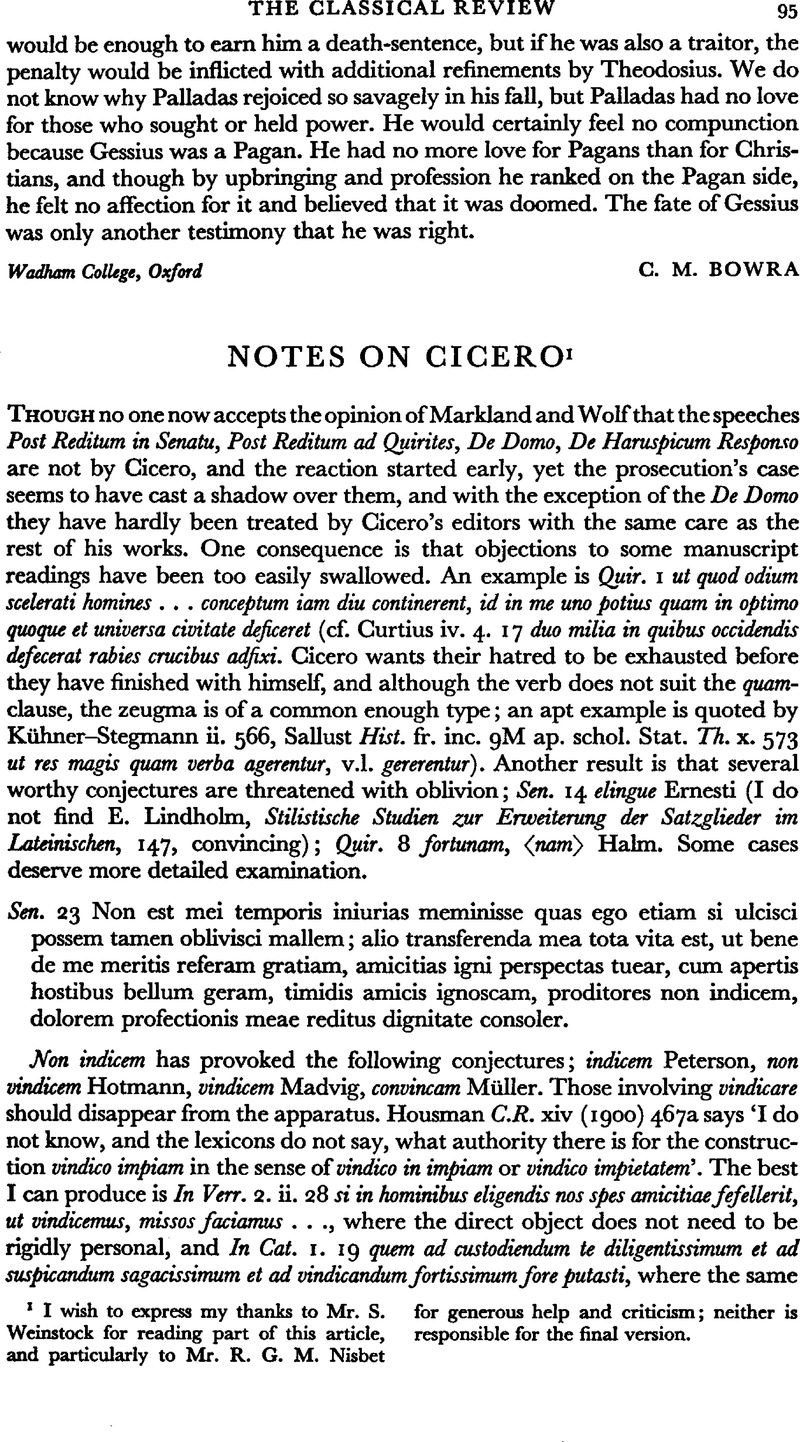Article contents
Notes on Cicero1
Published online by Cambridge University Press: 13 February 2009
Abstract

Information
- Type
- Review Article
- Information
- Copyright
- Copyright © The Classical Association 1960
References
page 96 note 1 See also Trans. Cambr. Phil. Soc. iii. 145.
page 97 note 1 Since I have diverged into patristic regions, I take the occasion to add a testimonium; the phrase curiosos oculos in Lactant. Inst. iii. 20. 2, in connexion with Clodius, is due to Har. Resp. 37 (Brandt notes the relationship of the passages). The quotations of Quir. 4, Har. Resp. 39 by Vincent of Beauvais, on which cf. Ullman, C.P. xxvii (1932) 32, are of no practical importance.
page 97 note 2 I hope it will not be ascribed to ingratitude if I take the opportunity of pointing out another error of omission in this work. The Berne scholia on Lucan ii. 125 have: ‘Marius Celium tr. pl. Sillanum de Tarpeio saxo praecipitavit. Sex. Lucilius anni superioris tr. pl. …’ This seems to have been completely overlooked by the reference books (Drumann–Groebe, M. Ziegler, Niccolini, R.-E., Broughton) not only as confirming the disputed name Lucilius, but also as giving a tribune Caelius or Coelius not mentioned elsewhere. This scholium contradicts Dio Cass. fr. 102. 12 Boiss. ὁ υἱὸς Μαρίον … ἄλλον (δήμαρχον: clearly the well-known Lucilius) ἀπὸ τοῦ Καπιτωλίον κατεκρήμνισεν, ὄπερ οὐδεὶς ἄλλος ἐπεπόνθει.
page 97 note 1 In Baiter's apparatus.
page 97 note 2 Magmenta are a kind of exta.
page 97 note 3 This instance of intransitive aperire should be added to Thes. L.L. ii. 216. 21–22.
- 1
- Cited by

